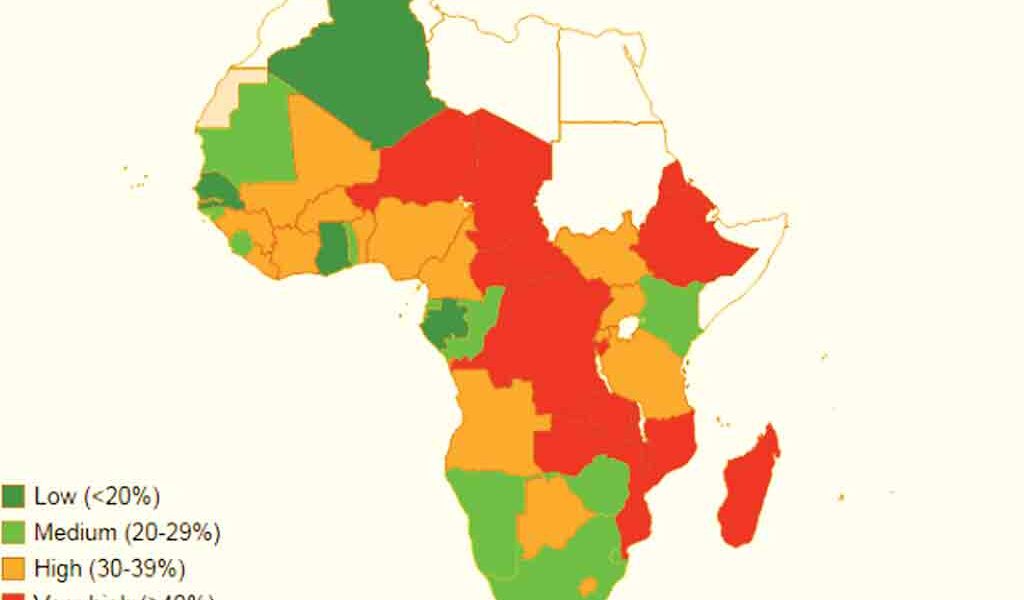- The only continent where children are both fat and stunted
- There is urgent need to reduce levels of malnutrition in Botswana – UNICEF
- In Botswana 1 in 3 children suffer from chronic malnutrition (stunting)
KAGO KOMANE
According to the recently released 2017 Global Nutrition report by the World Health Organization (WHO) Regional Office for Africa, the continent faces serious nutrition related challenges, as a result of both deficiency in nutrients and obesity.
A key finding in this report is that Africa is the only continent in the world where children are both fat and stunted as under nutrition is still persistent in the region, with major implications for health, particularly among poor and vulnerable population groups. Along with persistent low nutrition, the prevalence of excessive weight among children under 5 years of age as well as the overall number of children affected is rising, whereas the target is to halt its increase.
An alarm is also raised on critical gaps in the nutrition data available across the countries. For 19 out of the 47 countries, the ‘current’ nutrition data reflects the situation in 2012 or earlier. In two countries, the most recent surveys pre-date 2000.
WHO Regional Director for Africa Dr Matshidiso Moeti said in a statement that the numbers and trends highlighted in the report show that “there is need to work harder to avoid the long-term consequences of malnutrition and poor health on our children’s future prosperity, including the increased risk of diet-related noncommunicable diseases such as diabetes and hypertension.” She said the report underscores the need to work harder on collecting and using accurate data given that nutrition information available for most countries is more than five years old, and the use of routine data for nutrition monitoring is extremely limited.
According to UNICEF, in Botswana, the biggest challenge is lack of data on critical nutrition indicators at national level, such as data on child feeding practices, actual nutritional status (latest data is from 2007), and maternal nutrition data. “There is an urgent need for resources to facilitate a national nutrition survey to inform the implementation process.” UNICEF Botswana also reports that there is an urgent need to reduce the level of malnutrition in Botswana, where almost 1 in 3 children suffer from chronic malnutrition/stunting. A household survey data by UNICEF in 2012 showed that stunting among under-five year-olds was twice as high among children in the poorest households than those in the richest in the country.
Chronic malnutrition, UNICEF Botswana states, contributes to poor health outcomes for children, and has long term effects for survivors who have a higher risk of poor cognitive development, poor educational performance and low economic productivity, eventually leading to poverty. “To reduce stunting, concerted efforts are required to prevent and effectively manage infectious diseases among children, to improve infant and child feeding practices, and improve nutritional status of mothers during pregnancy. This calls for a robust community-level intervention strategy to promote and deliver lifesaving interventions, agricultural production that is sensitive to the nutritional needs of the population, as well as a multi-sectoral approach to promote nutrition-sensitive planning of other social development interventions.”
The WHO Report describes the current status in relation to six global nutrition targets that member states have committed to achieve by 2025 and underscores findings from the recently released Global Nutrition Report. The nutrition targets call for a 40 percent reduction in the number of children under-five who are stunted among other targets. Despite a decrease in the prevalence of stunting globally, about 60 million African children under five are not growing properly. At least 10 million others are also classified as overweight posing both a severe health burden on countries and hampering broader development efforts.

